Visa, Mastercard, and Discover have decided to “pause” their plans to implement a specialized Merchant Category Code (MCC) for gun retailers. The companies pointed to efforts by Republican lawmakers in places like Florida and Texas to pressure them into abandoning the idea over concerns the code could be used to track or even block gun sales.
We also saw one of the most expansive “Second Amendment Sanctuary” laws struck down this week. Contributing Writer Jake Fogleman looks at how expanding beyond the concept of local non-enforcement into outright nullification doomed the Missouri law and a similar effort in Oregon.
The federal courts were busy with gun cases beyond that one. In Florida, a three-judge panel of the Eleventh Circuit upheld the state’s ban on 18-to-20-year-olds buying guns. In Texas, a district judge blocked enforcement of the ATF’s “ghost gun” ban against pioneering firm Defense Distributed and its customers. I explain why the later ruling is a bad sign for President Biden’s pistol brace ban too.
Minnesota also released its crime data for concealed-carry permittees. It turns out they are very unlikely to commit gun crimes, much less likely than people without permits.
Plus, NRO’s Charles Cooke joins the podcast to talk about Florida Governor Ron Desantis’s pro-gun legislative push.
So, yea, it’s been a pretty busy week. It was a special week for me personally too because I was able to make a trip up to New York City to speak to a class at Columbia University about the history of the gun-rights movement. I enjoyed the back-and-forth I was able to have with the students and I think they enjoyed it as well.
Besides, I got to take the Acela for the first time and meet some of my CNN colleagues who are based in NYC. I was also able to sample some authentic New York pizza and bagels too. All and all a great experience!

Visa, Mastercard, and Discover ‘Pause’ Plans for New Gun Store Code
By Jake Fogleman
The country’s largest credit card processors are backing away from plans to implement a specialized code for gun retailers.
Visa, Mastercard, and Discover decided on Thursday that the three companies would “pause” work related to creating and implementing a Merchant Category Code (MCC) for businesses that sell guns. Visa told The Reload its decision to pause was spurred by legislation in various states looking to discourage use of the code.
“Visa’s mission is to facilitate secure and reliable global commerce in compliance with applicable laws,” Julia Thompson, a Visa spokesperson, told The Reload. “Multiple U.S. states are considering legislation to prohibit or restrict the use of the new merchant category code (MCC) for gun and ammunition stores. There is now significant confusion and legal uncertainty in the payments ecosystem, and the state actions disrupt the intent of global standards. Accordingly, Visa is pausing implementation of the MCC.”
A spokesperson for Discover told The Reload the company was removing its already finalized MCC “to continue alignment and interoperability with the industry.”
Mastercard told Reuters the company will be halting its plans as well. News of the pause was first reported by Bloomberg.
Click here to continue reading.
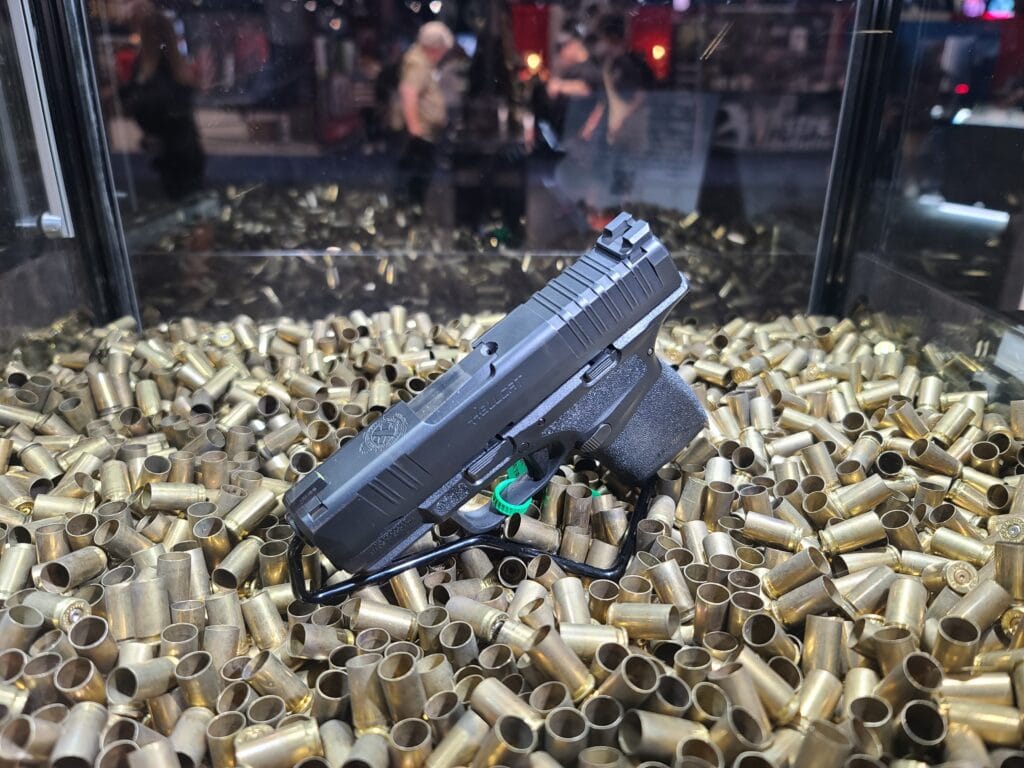
Federal Judge Strikes Down Missouri ‘Second Amendment Preservation’ Act
By Jake Fogleman
The Show-Me State’s attempt to block federal enforcement of gun laws was handed a decisive loss in court on Tuesday.
U.S. District Judge Brian C. Wimes, an Obama appointee, ruled that Missouri’s “Second Amendment Preservation Act” (SAPA) is unconstitutional. The law sought to prevent state officials from cooperating with federal officials to enforce certain federal gun laws. The judge decided the constitution’s supremacy clause preempts Missouri’s law.
“SAPA’s practical effects are counterintuitive to its stated purpose,” Judge Wimes wrote in his opinion. “While purporting to protect citizens, SAPA exposes citizens to greater harm by interfering with the Federal Government’s ability to enforce lawfully enacted firearms regulations designed by Congress for the purpose of protecting citizens within the limits of the Constitution.”
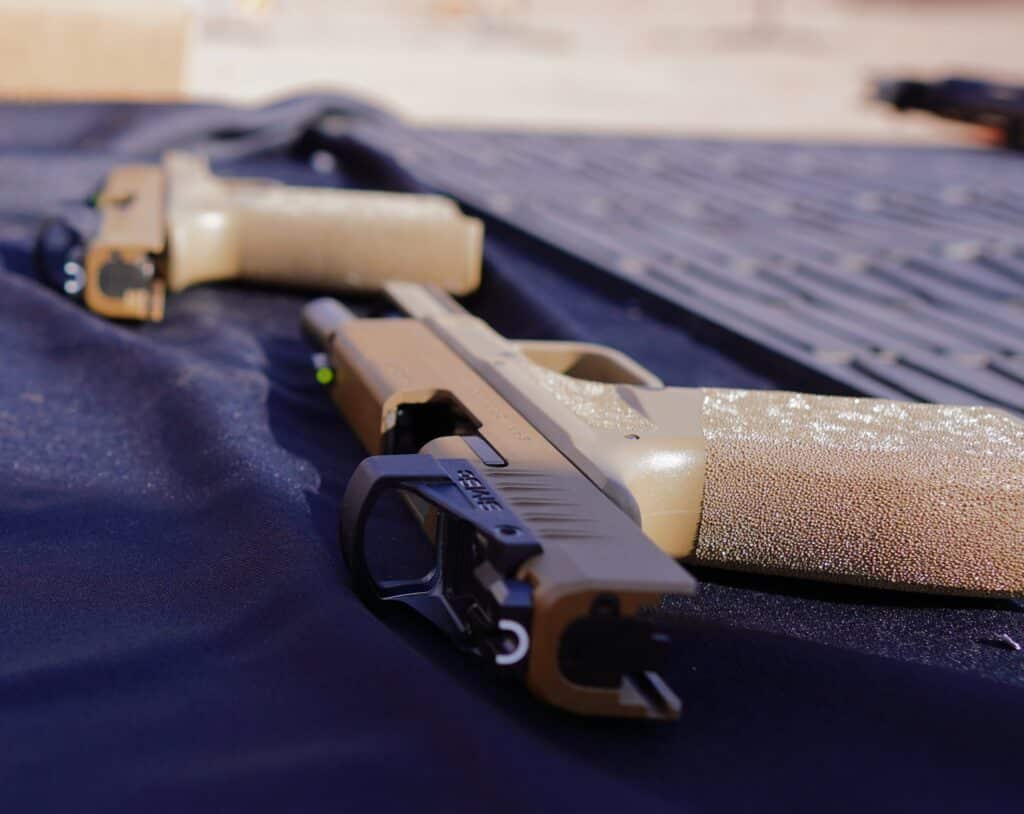
Analysis: The Lines are Starting to Be Drawn Around ‘Second Amendment Sanctuary’ Laws [Member Exclusive]
By Jake Fogleman
States and localities that refuse to use local resources to enforce certain gun-control measures may have a plausible legal path. But courts are starting to block efforts that move beyond that.
On Tuesday, U.S. District Judge Brian C. Wimes, an Obama appointee, ruled that Missouri’s “Second Amendment Preservation Act” (SAPA) is unconstitutional.
“SAPA’s practical effects are counterintuitive to its stated purpose,” Judge Wimes wrote in his opinion. “While purporting to protect citizens, SAPA exposes citizens to greater harm by interfering with the Federal Government’s ability to enforce lawfully enacted firearms regulations designed by Congress for the purpose of protecting citizens within the limits of the Constitution.”
Like many other Second Amendment sanctuary-style laws, this one sought to prevent state officials from cooperating with federal officials to enforce specific federal gun laws. But Missouri went further. It purported to nullify any national laws and regulations it considered infringements of the right to keep and bear arms within the state’s borders.
If you’re a Reload Member, click here to read more. If not, join today for exclusive access to this and hundreds of other analysis pieces!
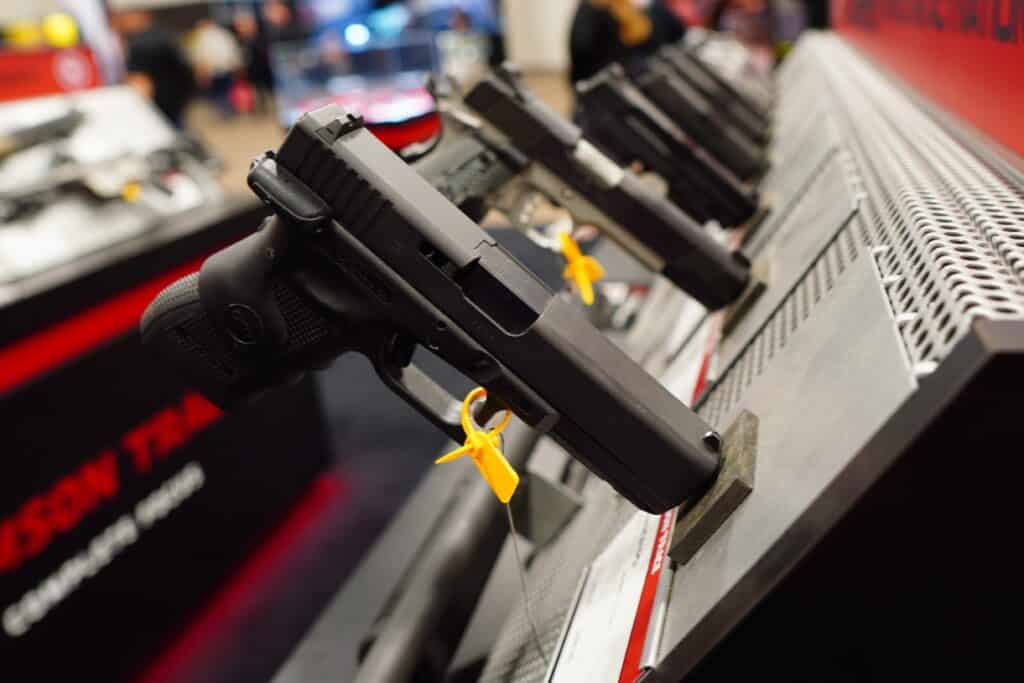
Federal Appeals Court Upholds Florida Ban on Gun Sales to Adults Under 21
By Jake Fogleman
The Second Amendment does not protect the ability of 18-to-20-year-olds to purchase firearms, according to the Eleventh Circuit Court of Appeals.
A three-judge panel for the circuit unanimously ruled in favor of Florida’s sales ban on Thursday. It concluded the law, which prohibits sales to those under the age of 21, “is consistent with our Nation’s historical tradition of firearm regulation.”
“Because Florida’s Act is at least as modest as the firearm prohibitions on 18-to-20-year-olds in the Reconstruction Era and enacted for the same reason as those laws, it is ‘relevantly similar’ to those Reconstruction Era laws,” Judge Robin Rosenbaum, an Obama appointee, wrote in her ruling. “And as a result, it does not violate the Second Amendment.”
Click here to read the full story.
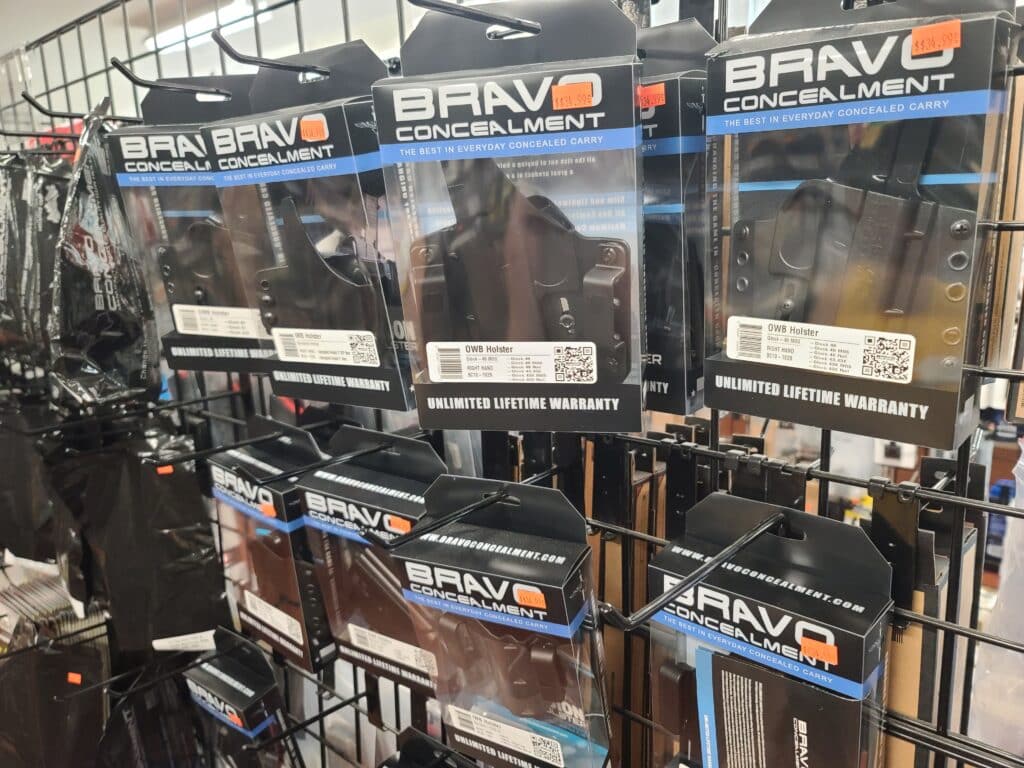
Minnesota Reports Miniscule Gun Crime Rate for Carry Permit Holders
By Stephen Gutowski
Just .03 percent of concealed carry permittees in Minnesota committed a gun crime last year.
That’s according to last week’s release from the Minnesota Department of Public Safety’s Bureau of Criminal Apprehension (BCA). The agency reports about 126 permit holders committed a gun crime out of the nearly 400,000 living in the state. The numbers show Minnesota concealed carriers commit gun crimes at a much lower rate than the national average.
The FBI’s National Incident-Based Reporting System found there were 246,893 gun crimes in 2021. That same year, the U.S. Census Bureau estimated there were 332,031,554 Americans. That means the average American was more than twice as likely to commit a gun crime than somebody licensed to carry a gun in Minnesota. The same trend holds within Minnesota itself, according to the same data.
Click here to read the full piece.
Podcast: National Review’s Charles Cooke on Florida’s Desantis Pushing Gun Reforms
By Stephen Gutowski
Charles Cooke is back on the show this week.
The National Review senior writer is an expert on gun policy and politics. He is also a Florida Man. So, he’s the perfect person to come on and talk about Governor Ron Desantis’s (R.) latest push to institute new gun reforms.
Plus, Contributing Writer Jake Fogleman and I talk about the California city trying to charge people $1,000 for a gun-carry permit. And Reload Member Liz Mair tells us about how guns have played a role in her life and why she comes to The Reload for gun news.
You can listen to the show on your favorite podcasting app or by clicking here. Video of the show is available on our YouTube channel. As always, Reload Members get early access to the show on Sunday. Everyone else will get access on Monday.

Federal Judge Expands Block on Biden ‘Ghost Gun’ Ban
By Stephen Gutowski
The ATF can no longer enforce its unfinished-gun-parts ban against one of the foremost makers of homemade firearm kits.
Judge Reed O’Connor of the U.S. District Court for the Northern District of Texas, a George W. Bush appointee, issued a preliminary injunction on Thursday extending protections against the government’s new regulations on homemade gun parts to Defense Distributed. The ATF can no longer implement its rule in regard to the company or its customers. The judge found those rules, proposed at the request of President Joe Biden (D.), are likely unconstitutional and cause an undue burden on the parts maker.
Judge O’Connor wrote in VanDerStok v. Garland that “[t]he Government’s likely ultra vires enforcement efforts upset decades of ATF regulatory precedent against a public that has relied on that historic posture” and “the liberty interests of law-abiding citizens wishing to engage in historically lawful conduct (dealing in now-regulated parts)—which Defense Distributed shares—outweighs the Government’s competing interest in preventing prohibited persons from unlawfully possessing firearms.”
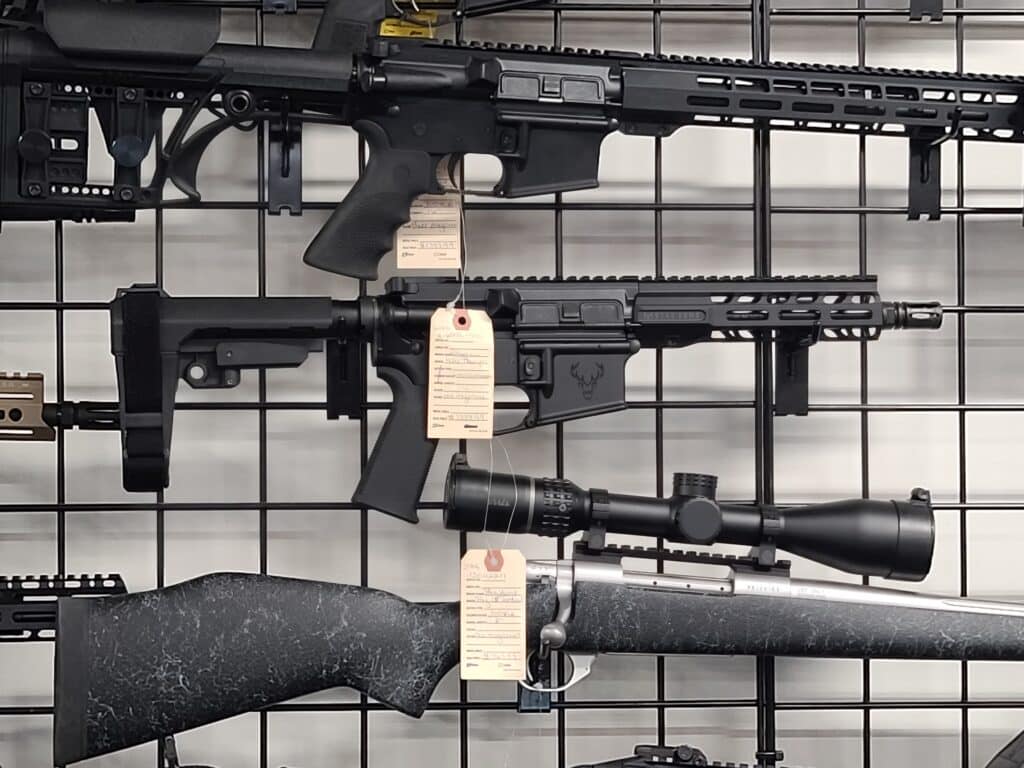
Analysis: Ruling Against ‘Ghost Gun’ Ban Another Bad Sign for the Pistol Brace Ban [Member Exclusive]
By Stephen Gutowski
President Biden’s efforts to enact new gun restrictions are failing, and it’s only likely to get worse for him from here.
On Thursday, federal district judge Reed O’Connor exempted Defense Distributed and its customers from the ATF’s new rule banning the sale of most unserialized gun kits and unfinished gun parts. Given the company’s position as a leader in the space, the ruling makes enforcement of the ban against anyone far more difficult. And it darkens the shadow already cast over the legal prospects of Biden’s other unilateral gun restriction: the pistol-brace ban.
Judge O’Connor found the ATF exceeded its statutory authority under the Administrative Procedure Act (APA) when it decided to reinterpret what constitutes a “firearm” after several decades in an effort to shut down the sale of unfinished parts and homemade gun kits. While it doesn’t directly mention it, the ruling is rooted in the same logic the Fifth Circuit Court of Appeals used to strike down the ATF’s bump stock ban in January. And it is difficult to see how the agency’s pistol brace rule won’t meet the same fate.
If you’re a Reload Member, click here to read more. If not, join today to read the whole piece!
Outside The Reload
Connecticut sues firearm companies in ghost gun crackdown | AP News
The growing ranks of Black gun owners | The Philadelphia Inquirer | By Jennifer Stefano
Biden’s Ghost Gun Crackdown Is Starting to Fall Apart | Vice | By Keegan Hamilton
That’s it for this week in guns.
I’ll see you all next week.
Thanks,
Stephen Gutowski
Founder
The Reload






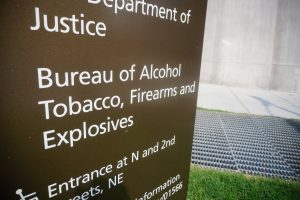

One Response
The first I’ve heard about “resident only” permit-less carry, it’s not being discussed anywhere. Will this be in the final bill? Some states only allow non residents to carry if it is allowed in their state of residence, a form of reciprocity for constitutional carry. I wish I could say where I was reading that, possibly someone could fill me in on that.